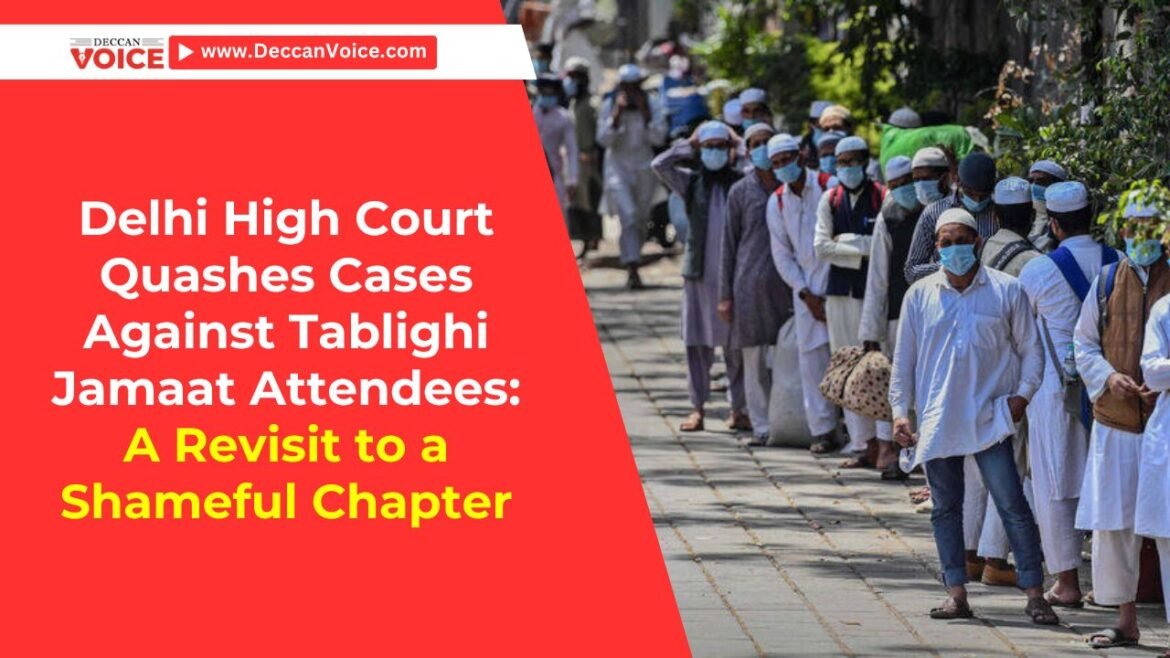Table of Contents
In a significant development, the Delhi High Court has quashed 16 First Information Reports (FIRs) filed against 70 Indian nationals who were accused of sheltering foreign attendees of the Tablighi Jamaat event during the initial phase of the COVID-19 pandemic. This ruling brings to light a deeply controversial period when a specific community was widely accused of spreading the virus, a narrative that many now view as a shameful instance of institutionalized scapegoating fueled by existing societal prejudices.
The Shameful Chapter: Scapegoating a Community
The Tablighi Jamaat event held in Nizamuddin, Delhi, in March 2020, became a focal point of public discourse as India grappled with the nascent stages of the COVID-19 pandemic. While concerns over large gatherings were legitimate given the health crisis, the narrative quickly took a sharp communal turn. An intense and pervasive media campaign, coupled with statements from certain political figures, allegedly singled out the Tablighi Jamaat attendees and, by extension, the entire Muslim community, as primary vectors for the virus’s spread.
This period witnessed what critics describe as an “institutionalized campaign” that leveraged existing prejudices. The event was widely portrayed as a deliberate act of defiance against lockdown measures, leading to calls for harsh penalties and widespread public condemnation. Experts and human rights organizations later criticized this narrative, arguing that it disproportionately targeted Muslims and diverted attention from broader public health challenges.
Political Exploitation and the Fueling of Hate
The controversy surrounding the Tablighi Jamaat event was, critics argue, cynically exploited by certain political elements and public figures for their own political gain. Figures associated with the “Sanghi” ideology, including individuals like BJP leader Kapil Mishra and political leader Raj Thackeray of the MNS, along with other prominent Hindu leaders, are accused of using this opportunity to amplify hate speech against the Tablighi Jamaat and the wider Muslim community.
This alleged politicization of a public health crisis involved spreading misinformation and communal animosity. Critics contend that these individuals and groups used their platforms to create an ‘us vs. them’ narrative, contributing to a climate of fear and suspicion. Such actions are seen as a direct attack on India’s secular fabric and a dangerous precedent for future crises.
The Delhi High Court’s Verdict: A Reaffirmation of Justice
The Delhi High Court’s decision to quash the 16 FIRs against 70 Indian nationals highlights the weaknesses in the prosecution’s case and potentially the lack of concrete evidence to support the severe charges. This ruling serves as a crucial legal pushback against what many perceived as discriminatory targeting. It underscores the importance of due process and justice, even amidst a public health emergency.
The verdict offers a moment for reflection on how public sentiment can be manipulated and how vigilance is required to prevent the scapegoating of communities. It calls upon society to learn from this “shameful chapter” and ensure that such institutionalized prejudice, fueled by political opportunism and misinformation, is never allowed to dominate public discourse again.



